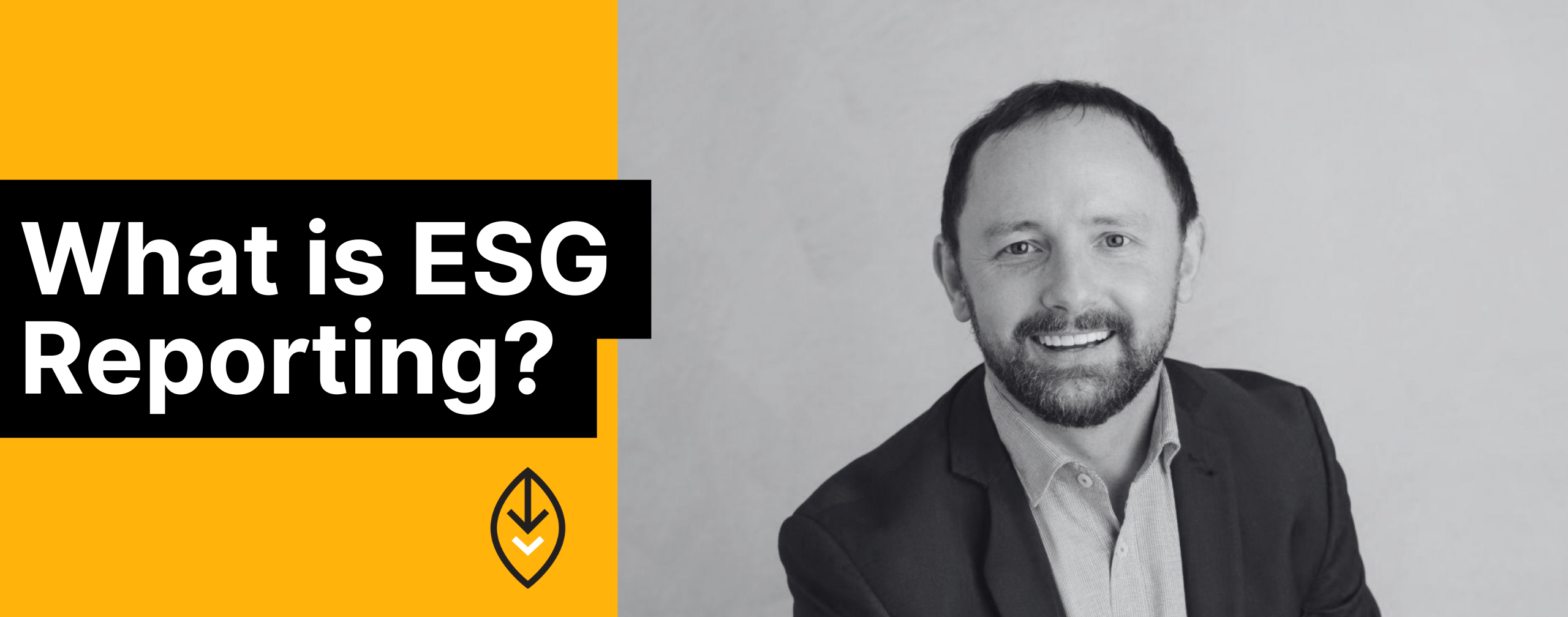
By Simon Donovan | Executive General Manager, Commercial, Fuse Fleet | December 2024
Fuse Fleet’s Guide to ESG Reporting Success in Australia
With growing interest from investors, customers and regulatory bodies, ESG (Environmental, Social and Governance) reporting has become a key focus for businesses worldwide. For fleet insurance companies like Fuse Fleet, the upcoming changes to ESG reporting requirements in Australia present both a challenge and an opportunity. ESG reporting is not just about compliance, it’s about driving your business towards a more sustainable and socially responsible future.
Understanding ESG Reporting
At its core, ESG reporting enables businesses to measure and disclose their impact on the environment, society, and their governance structures. Simon Donovan, Executive General Manager, Commercial at Fuse Fleet, explains, “ESG reporting is becoming an integral part of risk management. With the new Australian legislation, businesses need to ensure they’re not only compliant but also proactive in reducing their environmental footprint and improving governance.”
Australian ESG Legislation: What You Need to Know
Australia is introducing mandatory ESG reporting with an initial focus on climate-related financial disclosures. The Treasury’s January 2024 policy statement outlines the framework, which aligns with global standards such as the Task Force on Climate-Related Financial Disclosures (TCFD) and the International Sustainability Standards Board (ISSB).
Implementation Timeline
- From 1 January 2025, large entities meeting at least two of the following criteria must begin reporting:
- Revenue of $500 million or more.
- Gross assets of $1 billion or more.
- 500 or more employees.
- From 1 July 2026, medium-sized entities with revenue of $200 million or more will also be required to comply.
- Smaller entities with revenue above $50 million will follow suit from 1 July 2027.
Reporting Scope
The legislation requires businesses to include climate statements and related notes in their annual reports. These disclosures cover emissions (Scopes 1, 2 and 3), climate risks, mitigation strategies and progress towards sustainability goals. Over time, the scope will expand to include additional ESG topics, such as biodiversity and social impacts, as ISSB standards evolve.
Audit and Assurance
Sustainability reports must undergo audits in accordance with Australian auditing standards. Assurance requirements will be phased in, with entities expected to ensure accuracy and reliability of the disclosed information.
Global Alignment
This framework aligns Australia with global standards like the EU’s Corporate Sustainability Reporting Directive (CSRD), strengthening transparency and comparability across jurisdictions.
What Does ESG Reporting Cover?
ESG reporting encompasses three pillars:
- Environmental impact
- Social responsibility
- Governance standards
Environmental Impact
This includes tracking carbon emissions, energy consumption and sustainability targets. For fleet operators, reducing emissions is a priority. Fuse Fleet’s AI-driven solutions help businesses optimise fuel consumption, reduce high-risk driving behaviours and meet their sustainability goals.
Social Responsibility
Social aspects evaluate how a business supports its employees, communities and broader society. Fuse Fleet provides fleet managers with tools to enhance driver safety and well-being through tailored training and behavioural analysis.
Governance Standards
Governance focuses on accountability, transparency and compliance with regulations. Fuse Fleet’s digital solutions ensure operational clarity and help businesses adhere to industry standards while maintaining a high degree of accountability.
Why ESG Reporting is Crucial for Businesses
ESG reporting provides more than just regulatory compliance. It offers businesses a strategic advantage by demonstrating their commitment to sustainability and social responsibility.
For fleet management companies, the benefits include:
- Sustainability Improvements – Identify and address inefficiencies in routes and driver behaviours to reduce emissions.
- Enhanced Safety – Build a culture of safety with insights from Fuse Fleet’s behavioural analytics, reducing accidents and improving driver well-being.
- Increased Transparency – Build trust with investors and customers by showcasing your ESG initiatives.
- Financial Gains – Optimise operational costs through improved fuel efficiency and attract investment from ESG-conscious stakeholders.
How Fuse Fleet Can Support ESG Reporting
Navigating Australia’s new ESG requirements can be complex, but Fuse Fleet is here to simplify the process. Our AI-powered solutions enable businesses to measure, manage and report on their fleets’ environmental and social impacts with ease.
“Fuse Fleet’s dynamic behaviour-based insurance and claims management solutions not only help businesses manage risk but also align with ESG goals,” says Donovan. “We provide tools to measure your fleet’s environmental impact, ensure compliance and prepare for future sustainability standards.”
Using data from GPS-enabled fleets, Fuse Fleet’s AI processes billions of real-world trips to generate actionable insights. These insights empower fleet managers to address high-emission behaviours, improve safety and track progress against ESG goals.
Final Thoughts
With ESG reporting set to become mandatory for Australian businesses from 2025, it’s time to act. Fuse Fleet offers a clear pathway to compliance while helping businesses reduce their environmental footprint, enhance driver safety and maintain operational transparency.
Johan Forseke, Head of South East Asia at Greater Than, underscores the importance of early action. “Start now. By integrating ESG-focused solutions into your fleet management practices, you’ll be ready to meet tomorrow’s demands.”




